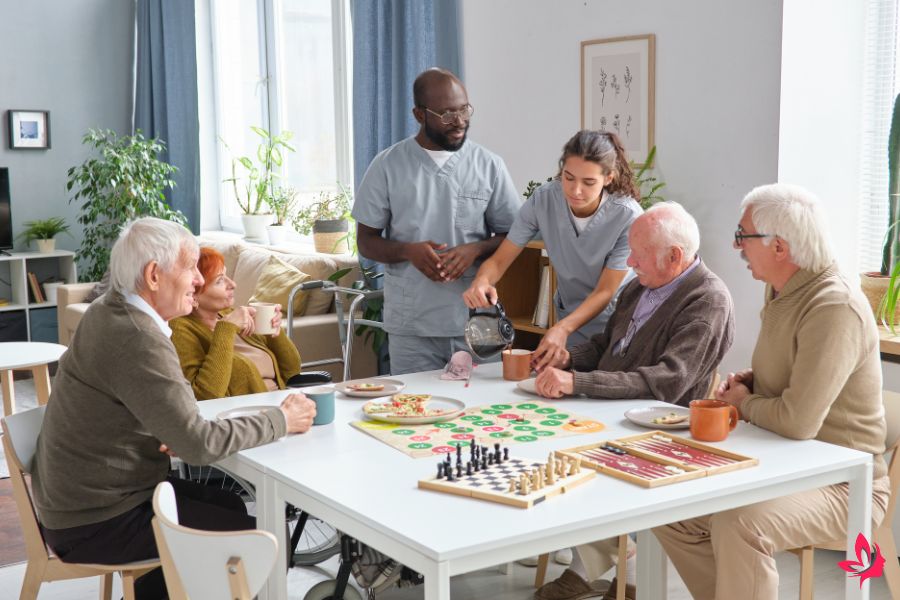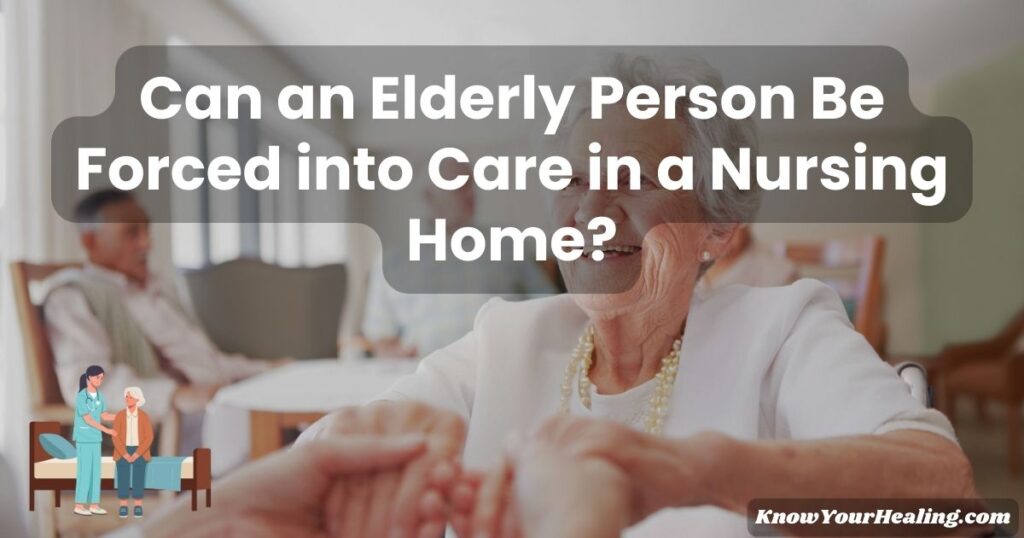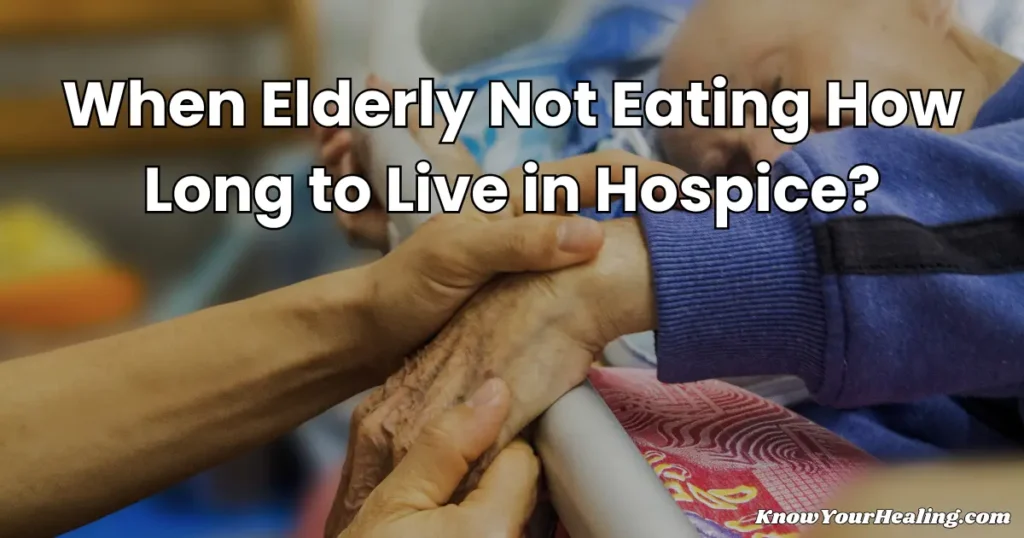Can an elderly person be forced into care against their will? This question weighs heavily on families facing tough decisions about their loved ones’ safety and independence.
In most cases, elderly individuals can’t be forced into nursing homes without their consent. Still, courts can order involuntary placement if someone lacks mental capacity and faces real danger.
The decision to move an aging parent or relative into care involves tricky legal protections and emotional considerations. Families have to navigate practical challenges with care.
Understanding when involuntary nursing home placement becomes legally possible helps families prepare for these sensitive situations. It’s all about respecting the rights and dignity of their loved ones, even when things get complicated.
Legal Rights & Process: Forcing an Elderly Person into a Nursing Home

Can an elderly person be forced into care is a question that involves a complex legal process. The law aims to protect autonomy but also addresses safety concerns.
Courts can override an older person’s choice to stay at home only through formal guardianship proceedings. This happens when mental capacity is legally compromised and safety is at risk.
When Are Elderly People Deemed Lacking Mental Capacity?
Mental capacity determinations need specific medical evidence. Just being older or having physical disabilities isn’t enough.
An elderly person can’t be forced into a care home unless they lack the cognitive ability to make informed decisions about their safety and care.
Medical professionals must document when someone can’t understand the consequences of their choices. This can include being unable to manage medications, maintain nutrition, or recognize dangers due to cognitive decline.
Key factors courts consider:
- Alzheimer’s disease or dementia diagnosis
- Inability to perform daily tasks safely
- Failure to recognize health risks
- Impaired judgment affecting personal care
A physical disability alone doesn’t establish incapacity. Someone might have mobility issues but still make sound decisions about their living situation and medical care.
Guardianship Is the Only Legal Path to Override Own Decisions
Legal guardianship is the only way family members can force an elderly parent into a nursing home against their wishes. The court must approve this process; adult children, social workers, or doctors can’t do it alone.
The guardianship petition needs clear evidence of incapacity. Family caregivers have to present medical evaluations and examples of the vulnerable adult’s inability to stay safe.
The legal process includes:
- Filing a petition in the county court
- Medical evaluation by qualified professionals
- Formal hearing with a judge
- Appointment of guardian ad litem
- Right to legal representation
If there is an immediate danger, courts may grant emergency guardianship. Still, they prefer the least restrictive environment and consider options like assisted living or in-home care before approving a move to a nursing home.
Power of Attorney: Limits on Moving an Elderly Parent
Financial power of attorney doesn’t let someone force an elderly relative into care. These documents only cover money matters and specific healthcare decisions mentioned in the agreement.
If an aging parent set up power of attorney while competent, they can revoke it. The agent can’t override the person’s clear wishes about where they live.
Healthcare power of attorney typically takes effect only when the person becomes incapacitated. Even then, the agent has to act in the person’s best interests and respect their stated preferences.
Residents’ Rights: Protecting an Elderly Individual’s Autonomy
Elder law attorneys emphasize that older adults retain their core legal right to self-determination. Social services cannot simply decide that a senior needs nursing home placement without court involvement.
Protected rights include:
- Choice of living environment
- Right to refuse medical treatment
- Control over financial decisions
- Freedom from elder abuse
Independent attorneys might represent the elderly person’s interests during guardianship proceedings. This helps ensure their wishes are heard, even if family members believe nursing home care is best.
State laws provide additional protections through adult protective services, which investigate neglect while also respecting individual autonomy. These professionals aim to distinguish between risky lifestyle choices and serious safety concerns that require intervention.
Role of Social Workers, Doctors & Local Authority in Evaluations
Social workers and medical professionals play crucial roles in capacity assessments. However, they can’t make forced placement decisions on their own.
Their evaluations inform court proceedings, but only a judge can decide incapacity. Healthcare providers document a person’s medical needs and assess whether they can manage their health conditions independently.
Local authority involvement depends on state laws. Some places require social services in guardianship cases, while others focus on medical testimony and family input.
The Human Impact: Elderly Persons, Families & Emotional Stakes

Can an elderly person be forced into making decisions that compromise their independence and impact their family relationships? The emotional toll is real for everyone involved.
Why Many Elderly Persons or Elderly Parents Resist Nursing Home Placement
Elderly individuals often view their home as central to their identity. Moving to a nursing home can feel like losing control over daily life and personal choices they’ve managed for years.
Many older adults worry about losing autonomy and legal rights to make their own decisions. Some fear isolation from family and familiar surroundings.
Money worries also play a part. Seniors know long-term care facilities can eat up life savings, and that’s a hard pill to swallow.
Common reasons for resistance include:
- Fear of losing independence
- Attachment to a familiar environment
- Concerns about the quality of care
- Financial worries about care costs
- Stigma associated with nursing homes
Difficult Situations for Family Members and Primary Caregivers
Adult children face difficult choices when their parents’ safety becomes a concern. Family caregivers often feel torn between respecting their loved one’s wishes and ensuring they receive adequate care.
The process can be stressful. Family members try to juggle work and caregiving, and primary caregivers can experience burnout from providing medical care and daily help.
Key challenges family members face:
- Balancing respect for autonomy with safety concerns
- Managing caregiver stress and burnout
- Navigating complex legal processes
- Financial strain from care costs
- Guilt about nursing home placement decisions
Social workers and elder law attorneys often step in when families can’t agree on the best care solution. Sometimes, there isn’t an easy answer.
Elder Abuse, Vulnerable Adults & Safeguarding Quality of Life
Elder abuse is a real problem that can happen anywhere, not just in care homes. Vulnerable adults may face physical, emotional, or financial exploitation that puts their safety at risk.
Elderly abuse and neglect can mean an older person can’t keep up their physical or mental health due to poor care. Adult protective services investigate reports of neglect or abuse, whether at home or in a facility.
Types of elder abuse include:
- Physical abuse or neglect
- Financial exploitation
- Emotional or psychological abuse
- Medical neglect
- Isolation from family and friends
Appointed guardians and healthcare providers have to watch for signs of abuse. It’s their job to ensure that the person’s best interests come first, using the appropriate legal authority if necessary.
Exploring Alternatives: In-Home Care, Respite Care & Assisted Living Communities
In-home care allows elderly people to stay in familiar surroundings while receiving the necessary medical and personal care. Home health providers can help with medical needs, and family members can still be involved.
Respite care provides family caregivers with a break while ensuring the elderly person receives supervision. It’s extra support without a permanent move to a facility.
Assisted living communities sit between independent living and nursing home care. They offer various types of care, but provide residents with more independence than traditional care homes.
Care alternatives include:
- Home care packages with medical professionals
- Adult day programs for social interaction
- Assisted living facilities with varying support levels
- Respite care for caregiver relief
- Senior living communities with healthcare services
When Safety Becomes Extreme: Last Resort Decision-Making
Sometimes, legal intervention is the only option when an elderly person is unable to make safe decisions. Courts may appoint a guardian ad litem if conditions like Alzheimer’s disease cause severe cognitive impairment.
Medical professionals assess whether someone can safely stay in their current home. An independent attorney might represent the elderly person’s interests during the guardianship process.
Last resort scenarios include:
- Severe cognitive impairment affecting safety
- Multiple hospitalizations due to neglect
- Inability to manage medications or medical needs
- Fire or safety hazards in the home environment
- Complete loss of ability to perform daily tasks
Local authorities and social services step in only when extreme circumstances put the vulnerable adult at risk. Sometimes, nursing home placement is the only way to keep them safe and well.
When an elderly person is unable to make safe decisions alone, families must navigate support systems and legal steps. Professional guidance from elder law attorneys, social services, and healthcare providers can make a significant difference.
Getting Legal Advice from an Elder Law Attorney or Independent Attorney
An elder law attorney is crucial when families face difficult decisions about an elderly relative’s care. These professionals are well-versed in the laws surrounding older adults and possess a thorough understanding of mental capacity assessments.
Legal advice is crucial when determining whether an elderly person can still make their own decisions. An independent attorney can help determine if legal guardianship is the most effective way to protect a vulnerable adult.
Key services elder law attorneys provide:
- Mental capacity evaluations
- Guardianship proceedings
- Power of attorney documents
- Protection from elder abuse
- Healthcare decision planning
Family members should consult an elder law attorney before initiating any legal process that alters a parent’s decision-making rights. Getting the paperwork right protects the individual’s interests and ensures everything is above board.
Support Services: Social Services, Adult Protective Services, and Local Authority Help
Social services step in when elderly folks face safety concerns at home. Adult protective services staff look into reports of elder abuse and check if someone needs urgent protection.
Local authority agencies offer care options before anyone even thinks about forced placement. These services include home care packages, respite care, and in-home care assistance, which can help older adults maintain their independence for longer.
Available support services include:
- Home health care assessments
- Financial management assistance
- Medical care coordination
- Personal care services
- Safety evaluations
Social workers evaluate a person’s needs and living situation. They team up with family caregivers to figure out the best way to address safety issues while still respecting the older person’s wishes.
Creating Legal Documents: Power of Attorney and Advance Planning
Financial power of attorney allows a chosen guardian to manage an older person’s affairs if cognitive impairment affects their ability to do so. Planning helps everyone avoid crises that might otherwise lead to emergency legal action.
Healthcare providers recommend drafting these legal documents while the person is still capable of making decisions. Planning early means healthcare choices reflect the person’s own values, not just what a court decides.
Essential legal documents include:
- Medical power of attorney
- Financial power of attorney
- Advanced healthcare directives
- Living wills
- Care preferences documentation
Families should discuss their care preferences openly with their aging parents. This process works best when the older adult has a real say in planning their later years.
Legal guardianship is a last resort, used only when someone is unable to make safe decisions for themselves. Medical professionals have to document severe cognitive impairment or Alzheimer’s disease before things go that far.
Courts appoint a guardian ad litem to advocate for the person’s best interests throughout the process. This legal authority makes sure someone correctly evaluates mental capacity and care needs.
Guardianship strips elderly people of their fundamental legal rights. Families should try every other care option, like assisted living or nursing home placement with consent, before heading down this legal path.
Ensuring Sound Decisions: Healthcare Providers, Quality of Life & Best Place
Healthcare providers help determine the appropriate level of care for older adults. Medical professionals assess a person’s health, ability to manage daily tasks, and medical needs.
The best spot for senior care depends on what the person needs most. Choices range from in-home care to assisted living or even long-term care facilities.
Care placement considerations:
- Medical treatment requirements
- Personal care needs
- Social interaction opportunities
- Safety and supervision levels
- Financial considerations
Primary caregivers should consult with senior living advisors to explore various care options that prioritize quality of life. Ideally, the best choice strikes a balance between safety and the person’s wish for independence.
Frequently Asked Questions
Lots of families wrestle with decisions about elderly care, especially when parents resist help or refuse to move. Knowing the legal limits and understanding the available options can help you navigate these challenging moments while still respecting your loved one’s rights.
If your elderly parent refuses to move to a care facility, start by looking at alternatives that help them stay at home safely. In-home care, meal delivery, or home modifications can address many safety concerns.
Have honest talks about specific safety concerns instead of just general worries. An elderly person can’t be forced into care unless they lack the mental capacity to make decisions.
If things become risky, consider reaching out to a geriatric social worker or an elder law attorney. They can help determine if your parent has capacity and what legal steps you can take.
If an elderly person refuses care, and they’re mentally capable, that’s their right. Social services can’t legally force someone into a nursing home without a court getting involved.
Adult Protective Services might investigate if there are real safety concerns. But before any forced placement, they must prove the person can’t make informed choices.
The right to self-determination sticks, even if the family disagrees. Only when cognitive problems impede decision-making can guardianship proceedings commence.
If your mom says no to nursing home care, and she can make her own decisions, that’s her call. Families can’t force elderly relatives into nursing homes without a solid legal reason.
Try discussing her concerns with the nursing home. Perhaps she’d consider assisted living or adult day programs instead—sometimes, less restrictive options are more effective.
Collaborate with healthcare providers to develop a care plan that ensures her safety and respects her wishes. That might mean more home care or making changes to her living space.
Dealing with an uncooperative parent takes patience and a little empathy. Listen to their fears about losing independence or leaving home.
Discuss specific safety concerns, not just general care requirements. Offer choices so they feel some control over what happens and when.
Sometimes, bringing in a neutral party, such as a geriatric care manager, can be helpful. Parents might take advice from a professional more seriously than from their adult kids.
Adult children aren’t legally required to provide personal care for elderly parents. However, sometimes, depending on the situation, you may have some financial responsibility if your parents are unable to pay for their own care.
Consider professional care options, such as home health aides, adult day programs, or residential facilities. Many communities have resources to help find and afford these services.
If your parents need help but refuse it, you can’t force them to accept care. The goal should be finding solutions that work for everyone while still respecting your parents’ independence.
Sometimes, you may not be able to provide the care your elderly parent needs. In such cases, professional care services step in to assist. Before considering involuntary nursing home placement, it’s worth exploring less restrictive options, such as in-home care services.
If your parent can’t make their own decisions and needs help right away, your family might need to petition for guardianship in probate court. This process allows a court-appointed guardian to make care decisions on their behalf.
In emergencies—say, if someone’s at risk of harming themselves or others—authorities may have to intervene fast. Usually, that means temporary protective steps, not a permanent move.




